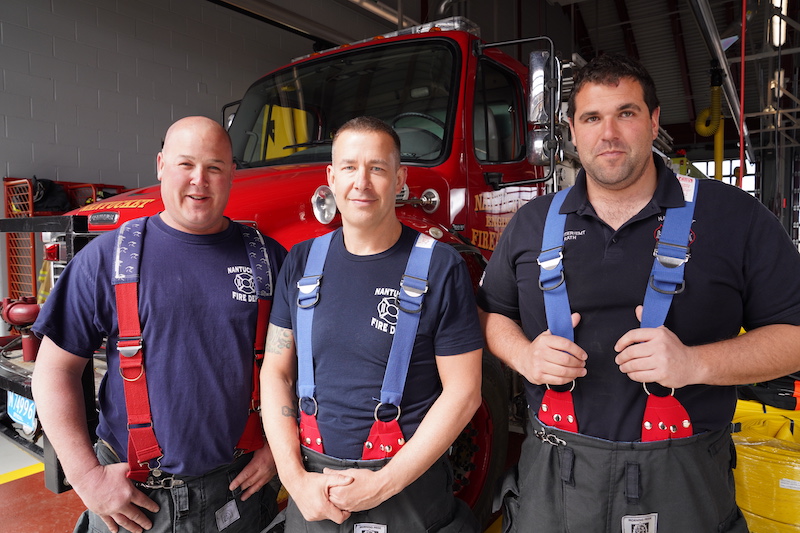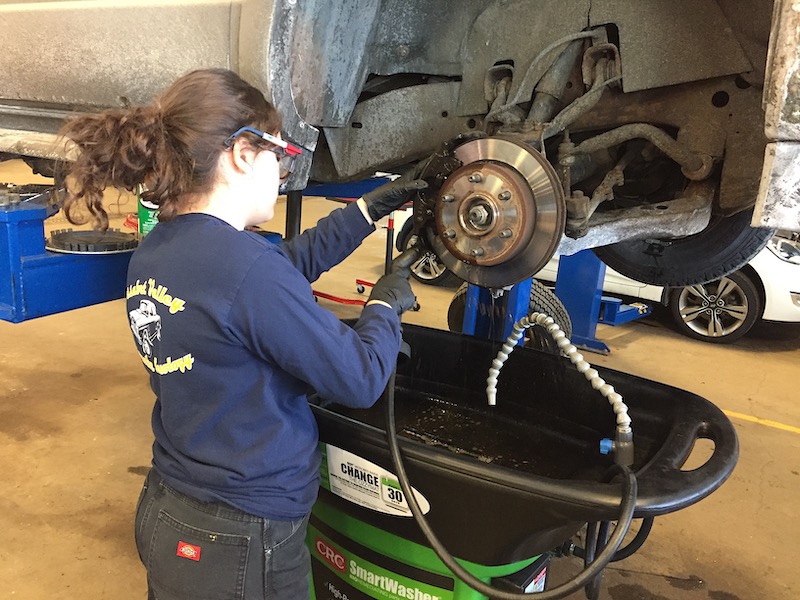Healthy Workplaces
Many small businesses use toxic or hazardous materials such as paints, solvents, oils, greases and inks in their daily operations that can adversely impact human health and the environment. Dry cleaners use perchloroethylene, a probable human carcinogen. Auto mechanics and body shop workers use solvents to clean parts and paint guns. Firefighters are exposed to PFAS in their protective gear and from firefighting foam.
One of our most recent grant recipients Nantucket PFAS Action Group is working with firefighters to replace firefighter gear that contains PFAS, chemicals that can lead to adverse health effects including certain types of cancer, increased cholesterol levels, negative effects on reproductive organs and thyroid disruption, according to the EPA.
The project team recently gathered samples from firefighters to measure the overall level of PFAS in their blood. Read "Firefighters embark on PFAS turnout gear study." Working with the Nantucket and Fall River Fire Departments, the project team will share information with firefighters, fire marshals, unions and cancer prevention groups in Massachusetts. The team will create fact sheets, host a webinar and use social media to share information on PFAS and safer alternatives.
With the help of TURI grants, the auto shop at Assabet Valley Regional Technical High School in Marlborough switch from using solvents to clean parts to a bio-based cleaning system. The auto collision shop purchased a water-based paint gun system. Both projects eliminated the use of solvents for cleaning. Read more.
TURI recently awarded Rindge School of Technical Arts in Cambridge a grant to implement the same bio-based cleaning system as well as replace lead wheel weights, which are physically handled by students on a daily basis, with non-lead weights.
Other healthy workplace projects include:

